第42章 THE CROSS AND THE CRESCENT(9)
The Crusaders failed utterly of the object at which they aimed. They succeeded in an object of which they never dreamed; for in those Crusades the Moslem and the Christian had met face to face, and found that both were men, that they had a common humanity, a common eternal standard of nobleness and virtue. So the Christian knights went home humbler and wiser men, when they found in the Saracen emirs the same generosity, truth, mercy, chivalrous self-sacrifice, which they had fancied their own peculiar possession, and added to that, a civilisation and a learning which they could only admire and imitate. And thus, from the era of the Crusades, a kindlier feeling sprang up between the Crescent and the Cross, till it was again broken by the fearful invasions of the Turks throughout Eastern Europe. The learning of the Moslem, as well as their commerce, began to pour rapidly into Christendom, both from Spain, Egypt, and Syria; and thus the Crusaders were, indeed, rewarded according to their deeds. They had fancied that they were bound to vindicate the possession of the earth for Him to whom they believed the earth belonged. He showed them--or rather He has shown us, their children--that He can vindicate His own dominion better far than man can do it for Him; and their cruel and unjust aim was utterly foiled. That was not the way to make men know or obey Him.
They took the sword, and perished by the sword. But the truly noble element in them--the element which our hearts and reasons recognise and love, in spite of all the loud words about the folly and fanaticism of the Crusades, whensoever we read "The Talisman" or "Ivanhoe"--the element of loyal faith and self-sacrifice--did not go unrequited. They learnt wider, juster views of man and virtue, which I cannot help believing must have had great effect in weakening in their minds their old, exclusive, and bigoted notions, and in paving the way for the great outburst of free thought, and the great assertion of the dignity of humanity, which the fifteenth century beheld. They opened a path for that influx of scientific knowledge which has produced, in after centuries, the most enormous effects on the welfare of Europe, and made life possible for millions who would otherwise have been pent within the narrow bounds of Europe, to devour each other in the struggle for room and bread.
But those Arabic translations of Greek authors were a fatal gift for Egypt, and scarcely less fatal gift for Bagdad. In that Almagest of Ptolemy, in that Organon of Aristotle, which the Crusaders are said to have brought home, lay, rude and embryotic, the germs of that physical science, that geographical knowledge which has opened to the European the commerce and the colonisation of the globe. Within three hundred years after his works reached Europe, Ptolemy had taught the Portuguese to sail round Africa; and from that day the stream of eastern wealth flowed no longer through the Red Sea, or the Persian Gulf, on its way to the new countries of the West; and not only Alexandria, but Damietta and Bagdad, dwindled down to their present insignificance. And yet the whirligig of time brings about its revenges. The stream of commerce is now rapidly turning back to its old channel; and British science bids fair to make Alexandria once more the inn of all the nations.